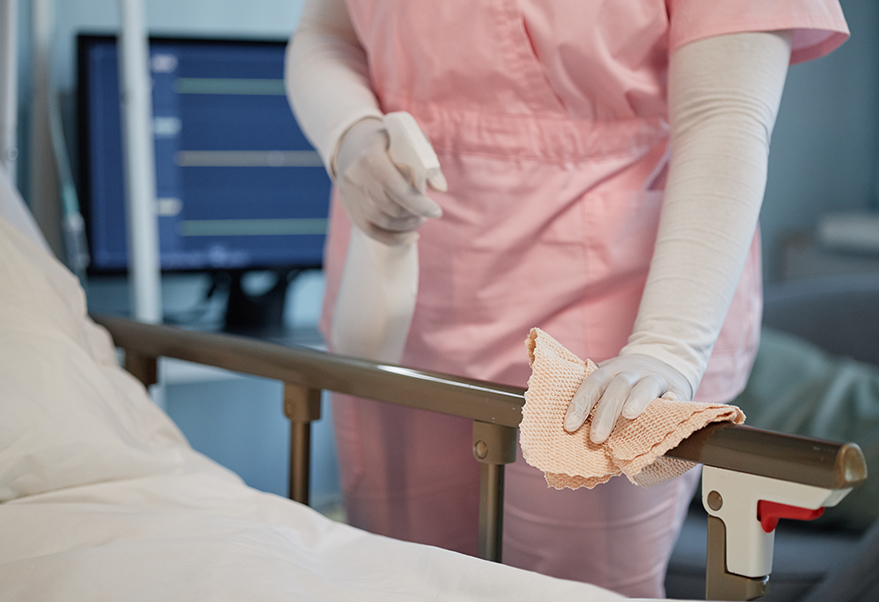Cost-effective disinfection with DDAC: Achieve more with less
In the world of disinfection, efficiency and cost-effectiveness are paramount. Didecyl Dimethyl Ammonium Chloride (DDAC) stands out as a superior choice for achieving high efficacy at lower concentrations, potentially leading to significant cost savings in cleaning and disinfection processes. Let's explore how DDAC's unique properties make it an ideal solution for various applications.

1. Superior efficacy at lower concentrations
DDAC is a di-alkyl quaternary ammonium compound (QAC) known for its robust antimicrobial properties. Compared to Alkyl Dimethyl Benzyl Ammonium Chloride (ADBAC), DDAC demonstrates higher efficacy at significantly lower concentrations. This means that less active substance is needed, compared to ADBAC based products, to achieve the same level of disinfection, which can result in cost savings for end-users.
2. Performance under challenging conditions
One of the key advantages of DDAC is its ability to maintain efficacy under challenging conditions, such as the presence of organic matter and hard water. In the environments with high organic load, DDAC outperforms ADBAC, ensuring reliable disinfection even in the dirty conditions. This makes DDAC particularly suitable for healthcare settings, food processing plants, and other hygiene-critical environments.
3. Cost savings in use
The superior efficacy of DDAC at lower concentrations translates to direct cost savings. By using less product (in comparison to products made with similar active concentration of ADBAC) to achieve the desired disinfection levels, businesses can reduce their overall expenditure on cleaning and disinfection supplies. Additionally, the reduced amount of active ingredient required can mean lower shipping costs and a smaller carbon footprint, contributing to sustainability goals.
4. Sustainability
The lower concentration of active ingredients required for effective disinfection means that less quaternary ammonium compounds is released into the environment. This may contribute to reducing the overall environmental impact of disinfection processes, making DDAC a more sustainable choice.
5. Practical applications
Healthcare settings: In hospitals and clinics, where hygiene is critical, DDAC provides effective disinfection at lower doses, helping to reduce healthcare-associated infections (HAIs) and improve patient safety.
Food processing plants: DDAC's ability to perform well in the presence of organic matter and low temperature makes it ideal for food processing environments, contributing to thorough disinfection and compliance with hygiene standards.
General cleaning: For everyday cleaning tasks, DDAC can provide a cost-effective solution that delivers high efficacy without the need for high concentrations of active ingredients.
Conclusion
DDAC's superior efficacy at lower concentrations offers potential cost saving and sustainable solution for disinfection. By choosing DDAC, businesses can achieve more with less, ensuring effective cleaning and disinfection while saving on costs and reducing their environmental impact.
For more hygiene solutions and expert advice, contact our sales team today or drop us a message on hygiene@arxada.com!